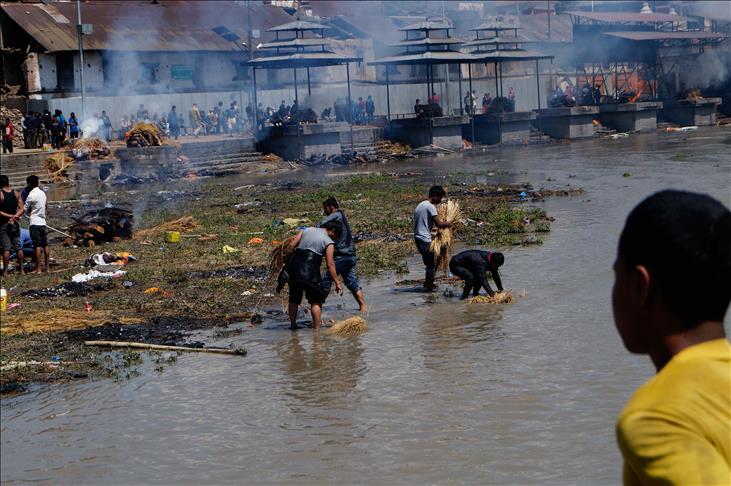
By Michael Vurens van Es
KATHMANDU, Nepal
Aid agencies in Nepal's capital Kathmandu are warning of a dangerous lack of clean water and access to sanitation for people displaced by a powerful earthquake that decimated parts of the country on Saturday.
More than 3,700 people have been killed and 6,500 injured in the aftermath of the 7.8-magnitude earthquake and the death toll has rapidly risen as emergency services recover bodies from the wreckage of collapsed buildings.
Makeshift shelters have been set up at traffic chowks, footpaths and scarce open areas throughout the densely-populated capital, by residents whose houses have been destroyed and those fearful of returning home because of aftershocks.
Since Saturday’s initial quake, there have been more than 50 aftershocks, raising fears about further damage to fragile buildings. On Sunday, a shock registering 6.7 on the Richter scale occurred at approximately 1 p.m. local time (8 a.m. GMT).
According to Anu Gautham, Water, Sanitation and Hygiene cluster coordinator at UNICEF Kathmandu, water scarcity within the Kathmandu valley will be exacerbated as the crisis drags on.
“Even in normal times there is a crisis of water in Nepal, particularly in the Kathmandu Valley. At this time, the water supply systems have been hit, and people are out on the streets and in the camps. The scarcity of water is elevating,” she told The Anadolu Agency.
According to Gautham, there are approximately 15,000 people sleeping in camps in the Tundhkhel area in central Kathmandu, the city’s largest open space.
Gautham said that though they hadn’t yet seen any open defecation occurring in the area, the dangers will mount.
“As people stay in the camps for a long time, we will have a crisis of sanitation there,” she said. “There will be issues of diarrhea and cholera and the likelihood is that there’ll be epidemics in the big camp areas.”
By midday Monday, barely 48 hours after the initial quake, emergency latrines, consisting of rows of shallow trenches, were already at capacity.
Though water trucks were servicing the area, people were being forced to line up for an hour and a half without shade in hot and humid weather.
Sagar Kharel, a 26-year-old who is sleeping in the open in Tundhikhel, said he is concerned at the possibility of diseases spreading, and that people are already defecating in open areas.
“Some people at night, they are using the open ground for the toilet,” he said.
Though problems of water, sanitation and hygiene are serious within Kathmandu, they may be exacerbated in outlying districts, more than half of which have been affected by the quake.
According to Alina Shrestha, communications manager at World Vision Nepal, the lack of services and health-related infrastructure outside of Kathmandu could prove pivotal.
“In neighbouring districts the situation may get worse. At least in Kathmandu there are facilities to treat people with water-borne diseases,” she said.
An update from the U.N. said transport and logistical problems posed a barrier to reaching remote areas and that there is an urgent need for trained doctors, medicine and medical supplies.
The international community has pledged millions of dollars for Nepal to spend on aid.
The European Commission promised 3 million Euros ($3.25 million) to be spent on clean water, medicine, emergency shelters and opening telecommunications in the worst affected areas.
"What is needed most are medical teams and relief supplies. I call on all EU Member States to join the coordinated European response," EU Commissioner for Humanitarian Aid and Crisis Management, Christos Stylianides said in a statement released Sunday.
Belgium, Finland, Germany, Greece, Netherlands, Poland and Sweden have already offered search and rescue teams, water purification systems and technical assistance, the Commission said.
The U.K. also pledged on Monday £5 million ($7.6 million) in aid and sent seven search and rescue crews and medics, as well as 11 tons of aid, to Nepal.
(Additional reporting by Kaamil Ahmed in Dhaka; Ilgin Karlidag in Brussels; Karim El-Bar in Ankara)
Anadolu Agency website contains only a portion of the news stories offered to subscribers in the AA News Broadcasting System (HAS), and in summarized form. Please contact us for subscription options.







